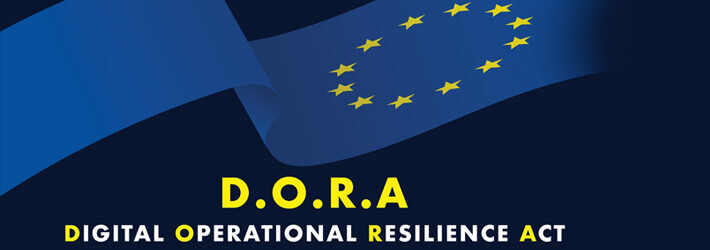
The Digital Operational Resilience Act (DORA) is a significant regulatory framework introduced by the European Union to enhance cybersecurity and operational resilience in the financial sector. As part of the EU’s Digital Finance Package, DORA aims to create a unified and robust approach to managing digital risks, ensuring that financial institutions and their service providers can withstand, manage, and recover from disruptions and cyber threats.
Since the Digital Operational Resilience Act (DORA) deadline is drawing near, it is imperative that financial institutions throughout the European Union get ready. DORA provides coverage to a wide range of entities within the financial ecosystem, including banks, insurance companies, payment service providers, providers of crypto-asset services, and third-party IT providers such as cloud vendors. Its primary goal is standardizing processes across EU member states by eliminating differences in cybersecurity regulations and encouraging a more resilient banking sector. In addition to addressing today’s cybersecurity concerns, DORA creates uniform standards that position the EU as a global leader in operational resilience.
Understanding DORA’s Requirements
DORA’s focus on information and communication technology (ICT) risk management is its central component. Establishing thorough ICT risk management frameworks that involve detecting vulnerabilities, evaluating possible hazards, and putting preventative measures in place is crucial for financial organizations. By guaranteeing that businesses are equipped to successfully address risks, these frameworks minimize disruptions and protect critical functions.
Download Whitepaper
DORA Implementation
Given the increasing sophistication and regularity of cyberattacks targeting the financial sector, DORA’s deployment is acceptable. Because of their critical infrastructure and sensitive data, financial institutions are attractive targets for hackers. Disruptions in this sector could have a big impact on businesses, customers, and economies. DORA mandates preventative measures to reduce these risks, ensuring that organizations can continue to operate and provide services even during emergencies.
Even though DORA has many advantages, smaller financial institutions may find it difficult to comply with its regulations. It might be necessary to make large investments in IT infrastructure, hire qualified staff, and implement ongoing monitoring procedures in order to comply with the rule. Furthermore, controlling third-party provider risks necessitates close supervision and cooperation, both of which can be resource-intensive.
Notwithstanding these challenges, DORA’s long-term benefits much outweigh its initial costs. DORA protects consumers and businesses from the effects of cyberattacks by strengthening cybersecurity protocols and ensuring operational resilience. Additionally, by guaranteeing stakeholders that their data and funds are secure, it fosters trust in the financial system. Additionally, DORA fosters innovation by guaranteeing that all firms adhere to the same stringent standards and leveling the playing field.
DORA’s Role
Financial institutions have various options for meeting DORA’s requirements. Conducting a gap analysis is an essential first step that allows firms to assess their current cybersecurity practices against the rule’s criteria. Developing comprehensive ICT risk management guidelines, enhancing incident reporting protocols, and providing money for regular testing are all crucial components of compliance. Institutions must also prioritize employee training and awareness programs to ensure that all employees understand their roles in managing incidents and preserving cybersecurity.
Another essential element of DORA compliance is cooperating with authorities. By maintaining open channels of communication with authorities, institutions can stay informed about evolving requirements and expectations and guarantee alignment with the objectives of the legislation. Enhancing readiness and resilience can also be achieved by participating in industry-wide threat intelligence sharing initiatives.
For financial institutions, DORA is more than just a regulatory requirement; it is an opportunity to build stronger, more resilient systems. While achieving compliance may require effort and investment, the benefits—ranging from increased security to improved stakeholder trust—make it a worthwhile endeavor. As the financial industry continues to evolve, DORA provides a robust foundation for a secure and stable future.
How Does Lepide Help with DORA Compliance?
Lepide Data Security Platform empowers financial institutions to achieve operational excellence and regulatory compliance through simplified data security identity. Our intuitive platform streamlines security operations, reducing complexity and resource requirements. With Lepide, organizations benefit from enhanced visibility, actionable insights, and accelerated incident response capabilities. By safeguarding sensitive data and maintaining compliance with regulatory frameworks, financial institutions can bolster trust, mitigate reputational risks, and focus on innovation and growth in a competitive marketplace.
Ready to take a look at a Data Security Platform that helps financial organizations improve their data security? Schedule a demo today.